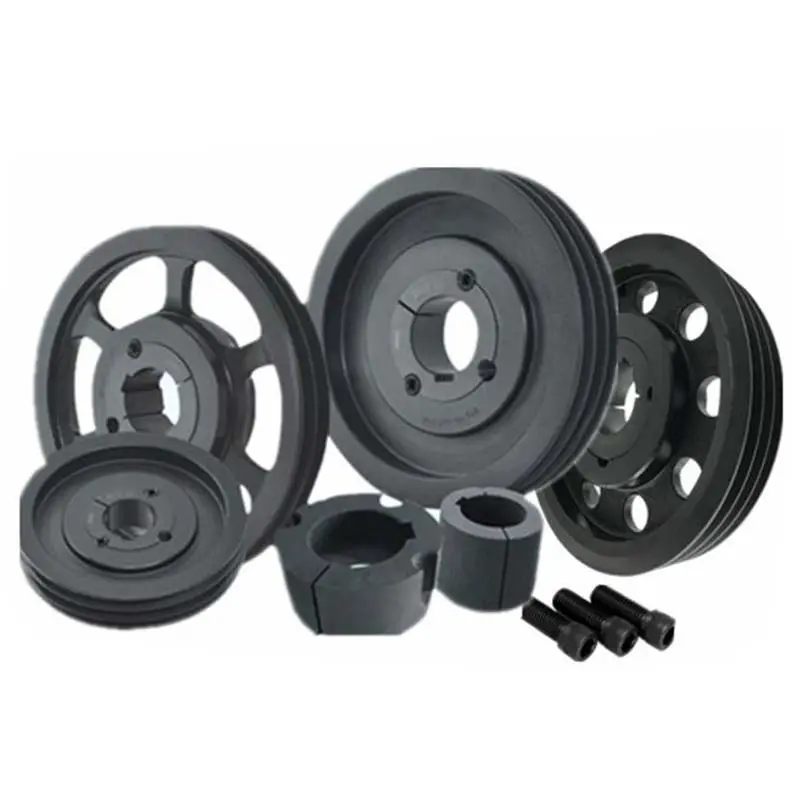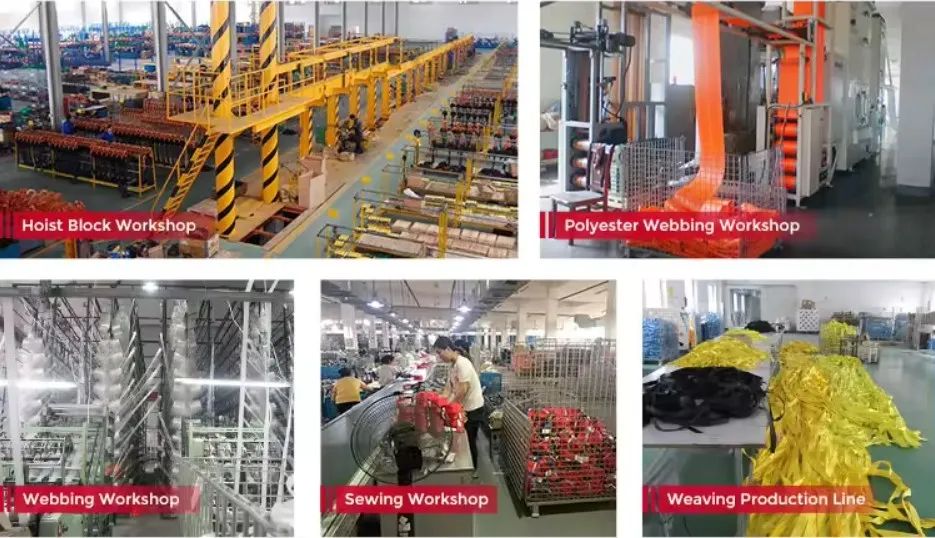Turndown Sheave Introduction
-
Increased Efficiency
By utilizing a turndown sheave, you can significantly improve the efficiency of your pulley system.
-
Reduced Wear and Tear
With the turndown design, there is less friction and wear on the belt, extending its lifespan.
-
Quiet Operation
The turndown sheave helps reduce noise during operation, making it a quieter choice.
-
Smooth Performance
Due to its design, the turndown sheave provides a smoother performance, enhancing the overall operation.
-
Enhanced Safety
By reducing wear and tear, the turndown sheave contributes to a safer working environment.

Types of Sheave Pulleys
-
V-Belt Sheave
These pulleys are designed for V-belts and are commonly used in various industrial applications.
-
Flat Belt Sheave
Flat belt sheaves are suitable for flat belts and are utilized in different machinery setups.
-
Wire Rope Sheave
Wire rope sheaves are specifically designed for wire ropes and are commonly used in lifting equipment.
-
Nylon Sheave
Nylon sheaves are lightweight and durable, making them ideal for various applications.
-
Timing Belt Sheave
Timing belt sheaves are precision-engineered for timing belts and ensure accurate power transmission.
-
Cable Sheave
Cable sheaves are designed to guide cables smoothly and are commonly used in crane systems.
What is a Sheave on a Pulley
-
Definition
A sheave on a pulley is a grooved wheel that holds a belt, rope, or cable to transmit motion or power.
-
Function
The sheave rotates on an axle and provides a means to guide the belt or rope in the desired direction.
-
Materials
Sheaves are commonly made of materials like steel, aluminum, or nylon, depending on the application.
-
Size Variations
Sheaves come in various sizes to accommodate different belt widths and loads.
-
Installation
Sheaves are typically mounted on shafts or axles and secured in place to ensure proper operation.
What are Sheaves used for?
-
Power Transmission
Sheaves are used to transmit power from one shaft to another via belts, ropes, or cables.
-
Mechanical Advantage
Sheaves provide mechanical advantage by changing the direction and magnitude of force applied.
-
Tension Control
Sheaves help control the tension in belts or ropes to prevent slippage or excessive wear.
-
Speed Regulation
Sheaves can be used to regulate the speed of rotating equipment by changing the diameter of the sheave.
-
Load Handling
Sheaves are essential in lifting systems to guide cables and distribute loads evenly.
-
Directional Changes
Sheaves are utilized to change the direction of motion in various mechanical systems.
Process of Sheave Pulley
-
Mold
The mold is prepared according to the design specifications for the sheave pulley.
-
Casting
The molten metal is poured into the mold and allowed to cool and solidify to form the sheave pulley.
-
Raw Materials
High-quality raw materials are used to ensure the durability and performance of the sheave pulley.
-
Production
The sheave pulley is manufactured with precision and attention to detail to meet industry standards.
-
Testing
Rigorous testing is conducted to ensure the sheave pulley meets quality and performance requirements.
-
Antirust Treatment
The sheave pulley undergoes anti-rust treatment to protect it from corrosion and extend its lifespan.
-
Separate Inspection
Each sheave pulley is individually inspected to guarantee quality and consistency.
-
Marking
Finally, the sheave pulley is marked with relevant information for identification and traceability.
How do you adjust Sheave Pulleys?
-
Inspect Belt Tension
Check the tension of the belt connected to the sheave pulley and adjust as needed.
-
Align Pulleys
Ensure the sheave pulley is properly aligned with other pulleys in the system for optimal performance.
-
Check for Wear
Regularly inspect the sheave pulley for signs of wear or damage and replace if necessary.
-
Use Tension Tools
Utilize tension tools to adjust the tension in the belt connected to the sheave pulley accurately.
-
Consult Manufacturer Guidelines
Refer to the manufacturer’s guidelines for specific instructions on adjusting the sheave pulley.
-
Monitor Performance
Monitor the performance of the sheave pulley after adjustments to ensure smooth operation.
-
Seek Professional Help
If unsure, it’s recommended to seek professional assistance for adjusting sheave pulleys.
About HZPT
At HZPT, we are dedicated to providing high-quality transmission components tailored to your needs. Since our establishment in 2006, we have been committed to precision and speed in manufacturing. Headquartered in Hangzhou, we specialize in producing a wide range of precision parts, including sheave pulleys. Our advanced production capabilities allow us to create complex products with the utmost accuracy.
Before establishing our overseas sales team, we began producing 3D printer parts, security screws and nuts, camera mounts, and more. Additionally, we offer assembly production services to streamline the process and save time and costs. Whether your project is large or small, we strive to deliver the best quality components and services to meet your needs. Partner with us early on, and we will help you make sound investments!
